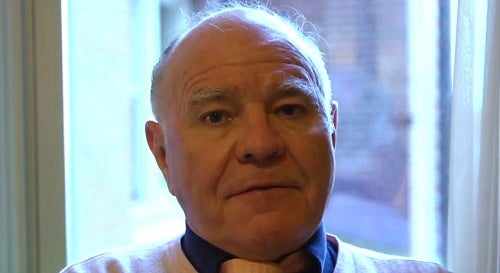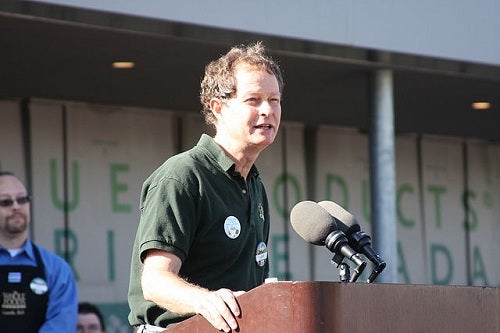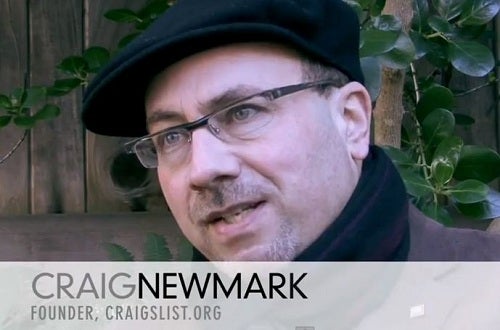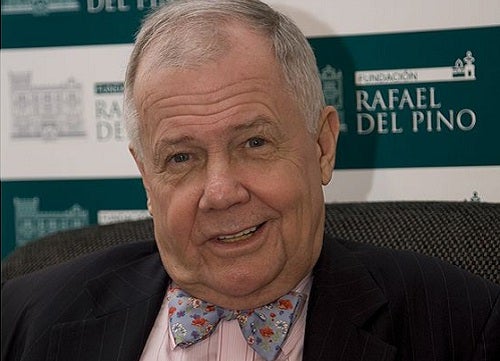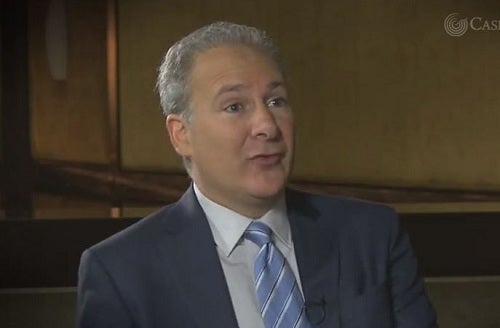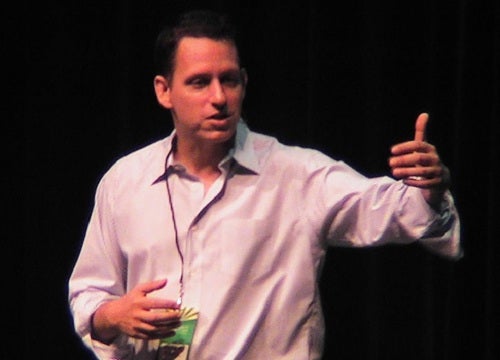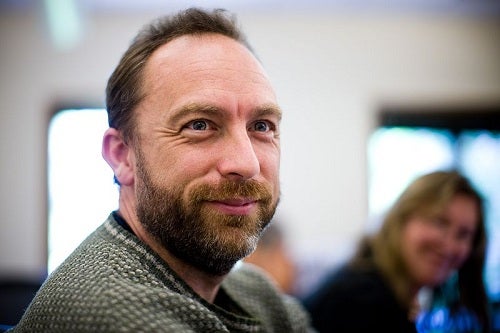The Reluctant Anarchist
by Joe Sobran
(From SOBRAN'S, December 2002)
My arrival (very recently) at philosophical
anarchism has disturbed some of my conservative and
Christian friends. In fact, it surprises me, going as it
does against my own inclinations.
As a child I acquired a deep respect for authority
and a horror of chaos. In my case the two things were
blended by the uncertainty of my existence after my
parents divorced and I bounced from one home to another
for several years, often living with strangers. A stable
authority was something I yearned for.
Meanwhile, my public-school education imbued me with
the sort of patriotism encouraged in all children in
those days. I grew up feeling that if there was one thing
I could trust and rely on, it was my government. I knew
it was strong and benign, even if I didn't know much else
about it. The idea that some people -- Communists, for
example -- might want to overthrow the government filled
me with horror.
G.K. Chesterton, with his usual gentle audacity,
once criticized Rudyard Kipling for his "lack of
patriotism." Since Kipling was renowned for glorifying
the British Empire, this might have seemed one of
Chesterton's "paradoxes"; but it was no such thing,
except in the sense that it denied what most readers
thought was obvious and incontrovertible.
Chesterton, himself a "Little Englander" and
opponent of empire, explained what was wrong with
Kipling's view: "He admires England, but he does not love
her; for we admire things with reasons, but love them
without reason. He admires England because she is strong,
not because she is English." Which implies there would be
nothing to love her for if she were weak.
Of course Chesterton was right. You love your
country as you love your mother -- simply because it is
*yours,* not because of its superiority to others,
particularly superiority of power.
This seems axiomatic to me now, but it startled me
when I first read it. After all, I was an American, and
American patriotism typically expresses itself in
superlatives. America is the freest, the mightiest, the
richest, in short the *greatest* country in the world,
with the greatest form of government -- the most
democratic. Maybe the poor Finns or Peruvians love their
countries too, but heaven knows why -- they have so
little to be proud of, so few "reasons." America is also
the most *envied* country in the world. Don't all people
secretly wish they were Americans?
That was the kind of patriotism instilled in me as a
boy, and I was quite typical in this respect. It was the
patriotism of supremacy. For one thing, America had never
lost a war -- I was even proud that America had created
the atomic bomb (providentially, it seemed, just in time
to crush the Japs) -- and this is why the Vietnam war was
so bitterly frustrating. Not the dead, but the defeat!
The end of history's great winning streak!
As I grew up, my patriotism began to take another
form, which it took me a long time to realize was in
tension with the patriotism of power. I became a
philosophical conservative, with a strong libertarian
streak. I believed in government, but it had to be
"limited" government -- confined to a few legitimate
purposes, such as defense abroad and policing at home.
These functions, and hardly any others, I accepted, under
the influence of writers like Ayn Rand and Henry Hazlitt,
whose books I read in my college years.
Though I disliked Rand's atheism (at the time, I was
irreligious, but not anti-religious), she had an odd
appeal to my residual Catholicism. I had read enough
Aquinas to respond to her Aristotelian mantras.
Everything had to have its own nature and limitations,
including the state; the idea of a state continually
growing, knowing no boundaries, forever increasing its
claims on the citizen, offended and frightened me. It
could only end in tyranny.
I was also powerfully drawn to Bill Buckley, an
explicit Catholic, who struck the same Aristotelian note.
During his 1965 race for mayor of New York, he made a
sublime promise to the voter: he offered "the internal
composure that comes of knowing there are rational limits
to politics." This may have been the most futile campaign
promise of all time, but it would have won my vote!
It was really this Aristotelian sense of "rational
limits," rather than any particular doctrine, that made
me a conservative. I rejoiced to find it in certain
English writers who were remote from American
conservatism -- Chesterton, of course, Samuel Johnson,
Edmund Burke, George Orwell, C.S. Lewis, Michael
Oakeshott.
In fact I much preferred a literary, contemplative
conservatism to the activist sort that was preoccupied
with immediate political issues. During the Reagan years,
which I expected to find exciting, I found myself bored
to death by supply-side economics, enterprise zones,
"privatizing" welfare programs, and similar principle-
dodging gimmickry. I failed to see that "movement"
conservatives were less interested in principles than in
Republican victories. To the extent that I did see it, I
failed to grasp what it meant.
Still, the last thing I expected to become was an
anarchist. For many years I didn't even know that serious
philosophical anarchists existed. I'd never heard of
Lysander Spooner or Murray Rothbard. How could society
survive at all without a state?
Now I began to be critical of the U.S. Government,
though not very. I saw that the welfare state, chiefly
the legacy of Franklin Roosevelt's New Deal, violated the
principles of limited government and would eventually
have to go. But I agreed with other conservatives that in
the meantime the urgent global threat of Communism had to
be stopped. Since I viewed "defense" as one of the proper
tasks of government, I thought of the Cold War as a
necessity, the overhead, so to speak, of freedom. If the
Soviet threat ever ceased (the prospect seemed remote),
we could afford to slash the military budget and get back
to the job of dismantling the welfare state.
Somewhere, at the rainbow's end, America would
return to her founding principles. The Federal Government
would be shrunk, laws would be few, taxes minimal. That
was what I thought. Hoped, anyway.
I avidly read conservative and free-market
literature during those years with the sense that I was,
as a sort of late convert, catching up with the
conservative movement. I took it for granted that other
conservatives had already read the same books and had
taken them to heart. Surely we all wanted the same
things! At bottom, the knowledge that there were rational
limits to politics. Good old Aristotle. At the time, it
seemed a short hop from Aristotle to Barry Goldwater.
As is fairly well known by now, I went to work as a
young man for Buckley at NATIONAL REVIEW and later became
a syndicated columnist. I found my niche in conservative
journalism as a critic of liberal distortions of the U.S.
Constitution, particularly in the Supreme Court's rulings
on abortion, pornography, and "freedom of expression."
Gradually I came to see that the conservative
challenge to liberalism's jurisprudence of "loose
construction" was far too narrow. Nearly everything
liberals wanted the Federal Government to do was
unconstitutional. The key to it all, I thought, was the
Tenth Amendment, which forbids the Federal Government to
exercise any powers not specifically assigned to it in
the Constitution. But the Tenth Amendment had been
comatose since the New Deal, when Roosevelt's Court
virtually excised it.
This meant that nearly all Federal legislation from
the New Deal to the Great Society and beyond had been
unconstitutional. Instead of fighting liberal programs
piecemeal, conservatives could undermine the whole lot of
them by reviving the true (and, really, obvious) meaning
of the Constitution. Liberalism depended on a long series
of usurpations of power.
{{ Around the time of Judge Robert Bork's bitterly
contested (and defeated) nomination to the U.S. Supreme
Court, conservatives spent a lot of energy arguing that
the "original intent" of the Constitution must be
conclusive. But they applied this principle only to a few
ambiguous phrases and passages that bore on specific hot
issues of the day -- the death penalty, for instance.
About the *general* meaning of the Constitution there
could, I thought, be no doubt at all. The ruling
principle is that whatever the Federal Government isn't
authorized to do, it's forbidden to do.
{{ That alone would invalidate the Federal welfare
state and, in fact, nearly all liberal legislation. But I
found it hard to persuade most conservatives of this.
Bork himself took the view that the Tenth Amendment was
unenforceable. If he was right, then the whole
Constitution was in vain from the start. }}
I never thought a constitutional renaissance would
be easy, but I did think it could play an indispensable
role in subverting the legitimacy of liberalism. Movement
conservatives listened politely to my arguments, but
without much enthusiasm. They regarded appeals to the
Constitution as rather pedantic and, as a practical
matter, futile -- not much help in the political
struggle. Most Americans no longer even remembered what
"usurpation" meant. Conservatives themselves hardly knew.
Of course they were right, in an obvious sense. Even
conservative courts (if they could be captured) wouldn't
be bold enough to throw out the entire liberal legacy at
once. But I remained convinced that the conservative
movement had to attack liberalism at its constitutional
root.
In a way I had transferred my patriotism from
America as it then was to America as it had been when it
still honored the Constitution. And when had it crossed
the line? At first I thought the great corruption had
occurred when Franklin Roosevelt subverted the Federal
judiciary; later I came to see that the decisive event
had been the Civil War, which had effectively destroyed
the right of the states to secede from the Union. But
this was very much a minority view among conservatives,
particularly at NATIONAL REVIEW, where I was the only one
who held it.
I've written more than enough about my career at the
magazine, so I'll confine myself to saying that it was
only toward the end of more than two happy decades there
that I began to realize that we *didn't* all want the
same things after all. When it happened, it was like
learning, after a long and placid marriage, that your
spouse is in love with someone else, and has been all
along.
Not that I was betrayed. I was merely blind. I have
no one to blame but myself. The Buckley crowd, and the
conservative movement in general, no more tried to
deceive me than I tried to deceive them. We all assumed
we were on the same side, when we weren't. If there is
any fault for this misunderstanding, it is my own.
In the late 1980s I began mixing with Rothbardian
libertarians -- they called themselves by the
unprepossessing label "anarcho-capitalists" -- and even
met Rothbard himself. They were a brilliant, combative
lot, full of challenging ideas and surprising arguments.
Rothbard himself combined a profound theoretical
intelligence with a deep knowledge of history. His magnum
opus, MAN, ECONOMY, AND STATE, had received the most
unqualified praise of the usually reserved Henry Hazlitt
-- in NATIONAL REVIEW!
I can only say of Murray what so many others have
said: never in my life have I encountered such an
original and vigorous mind. A short, stocky New York Jew
with an explosive cackling laugh, he was always exciting
and cheerful company. Pouring out dozens of big books and
hundreds of articles, he also found time, heaven knows
how, to write (on the old electric typewriter he used to
the end) countless long, single-spaced, closely reasoned
letters to all sorts of people.
Murray's view of politics was shockingly blunt: the
state was nothing but a criminal gang writ large. Much as
I agreed with him in general, and fascinating though I
found his arguments, I resisted this conclusion. I still
wanted to believe in constitutional government.
Murray would have none of this. He insisted that the
Philadelphia convention at which the Constitution had
been drafted was nothing but a "coup d'etat,"
centralizing power and destroying the far more tolerable
arrangements of the Articles of Confederation. This was a
direct denial of everything I'd been taught. I'd never
heard anyone suggest that the Articles had been
preferable to the Constitution! But Murray didn't care
what anyone thought -- or what *everyone* thought. (He'd
been too radical for Ayn Rand.)
Murray and I shared a love of gangster films, and he
once argued to me that the Mafia was preferable to the
state, because it survived by providing services people
actually wanted. I countered that the Mafia behaved like
the state, extorting its own "taxes" in protection
rackets directed at shopkeepers; its market was far from
"free." He admitted I had a point. I was proud to have
won a concession from him.
Murray died a few years ago without quite having
made an anarchist of me. It was left to his brilliant
disciple, Hans-Hermann Hoppe, to finish my conversion.
Hans argued that no constitution could restrain the
state. Once its monopoly of force was granted legitimacy,
constitutional limits became mere fictions it could
disregard; nobody could have the legal standing to
enforce those limits. The state itself would decide, by
force, what the constitution "meant," steadily ruling in
its own favor and increasing its own power. This was true
a priori, and American history bore it out.
What if the Federal Government grossly violated the
Constitution? Could states withdraw from the Union?
Lincoln said no. The Union was "indissoluble" unless all
the states agreed to dissolve it. As a practical matter,
the Civil War settled that. The United States, plural,
were really a single enormous state, as witness the new
habit of speaking of "it" rather than "them."
So the people are bound to obey the government even
when the rulers betray their oath to uphold the
Constitution. The door to escape is barred. Lincoln in
effect claimed that it is not our rights but the state
that is "unalienable." And he made it stick by force of
arms. No transgression of the Constitution can impair the
Union's inherited legitimacy. Once established on
specific and limited terms, the U.S. Government is
forever, even if it refuses to abide by those terms.
As Hoppe argues, this is the flaw in thinking the
state can be controlled by a constitution. Once granted,
state power naturally becomes absolute. Obedience is a
one-way street. Notionally, "We the People" create a
government and specify the powers it is allowed to
exercise over us; our rulers swear before God that they
will respect the limits we impose on them; but when they
trample down those limits, our duty to obey them remains.
Yet even after the Civil War, certain scruples
survived for a while. Americans still agreed in principle
that the Federal Government could acquire new powers only
by constitutional amendment. Hence the postwar amendments
included the words "Congress shall have power to" enact
such and such legislation.
But by the time of the New Deal, such scruples were
all but defunct. Franklin Roosevelt and his Supreme Court
interpreted the Commerce Clause so broadly as to
authorize virtually any Federal claim, and the Tenth
Amendment so narrowly as to deprive it of any inhibiting
force. Today these heresies are so firmly entrenched that
Congress rarely even asks itself whether a proposed law
is authorized or forbidden by the Constitution.
In short, the U.S. Constitution is a dead letter. It
was mortally wounded in 1865. The corpse can't be
revived. This remained hard for me to admit, and even now
it pains me to say it.
Other things have helped change my mind. R.J. Rummel
of the University of Hawaii calculates that in the
twentieth century alone, states murdered about
162,000,000 million of their own subjects. This figure
doesn't include the tens of millions of foreigners they
killed in war. How, then, can we speak of states
"protecting" their people? No amount of private crime
could have claimed such a toll. As for warfare, Paul
Fussell's book WARTIME portrays battle with such
horrifying vividness that, although this wasn't its
intention, I came to doubt whether any war could be
justified.
My fellow Christians have argued that the state's
authority is divinely given. They cite Christ's
injunction "Render unto Caesar the things that are
Caesar's" and St. Paul's words "The powers that be are
ordained of God." But Christ didn't say which things --
if any -- belong to Caesar; his ambiguous words are far
from a command to give Caesar whatever he claims. And
it's notable that Christ never told his disciples either
to establish a state or to engage in politics. They were
to preach the Gospel and, if rejected, to move on. He
seems never to have imagined the state as something they
could or should enlist on their side.
At first sight, St. Paul seems to be more positive
in affirming the authority of the state. But he himself,
like the other martyrs, died for *defying* the state, and
we honor him for it; to which we may add that he was on
one occasion a jailbreaker as well. Evidently the passage
in Romans has been misread. It was probably written
during the reign of Nero, not the most edifying of
rulers; but then Paul also counseled slaves to obey their
masters, and nobody construes this as an endorsement of
slavery. He may have meant that the state and slavery
were here for the foreseeable future, and that Christians
must abide them for the sake of peace. Never does he say
that either is here forever.
St. Augustine took a dim view of the state, as a
punishment for sin. He said that a state without justice
is nothing but a gang of robbers writ large, while
leaving doubt that any state could ever be otherwise. St.
Thomas Aquinas took a more benign view, arguing that the
state would be necessary even if man had never fallen
from grace; but he agreed with Augustine that an unjust
law is no law at all, a doctrine that would severely
diminish any known state.
The essence of the state is its legal monopoly of
force. But force is subhuman; in words I quote
incessantly, Simone Weil defined it as "that which turns
a person into a thing -- either corpse or slave." It may
sometimes be a necessary evil, in self-defense or defense
of the innocent, but nobody can have by right what the
state claims: an exclusive privilege of using it.
It's entirely possible that states -- organized
force -- will always rule this world, and that we will
have at best a choice among evils. And some states are
worse than others in important ways: anyone in his right
mind would prefer living in the United States to life
under a Stalin. But to say a thing is inevitable, or less
onerous than something else, is not to say it is good.
For most people, "anarchy" is a disturbing word,
suggesting chaos, violence, antinomianism -- things they
hope the state can control or prevent. The term "state,"
despite its bloody history, doesn't disturb them. Yet
it's the state that is truly chaotic, because it means
the rule of the strong and cunning. They imagine that
anarchy would naturally terminate in the rule of thugs.
But mere thugs can't assert a plausible *right* to rule.
Only the state, with its propaganda apparatus, can do
that. This is what "legitimacy" means. Anarchists
obviously need a more seductive label.
"But what would you replace the state with?" The
question reveals an inability to imagine human society
without the state. Yet it would seem that an institution
that can take 200,000,000 lives within a century hardly
needs to be "replaced."
Christians, and especially Americans, have long been
misled about all this by their good fortune. Since the
conversion of Rome, most Western rulers have been more or
less inhibited by Christian morality (though, often
enough, not so's you'd notice), and even warfare became
somewhat civilized for centuries; and this has bred the
assumption that the state isn't necessarily an evil at
all. But as that morality loses its cultural grip, as it
is rapidly doing, this confusion will dissipate. More and
more we can expect the state to show its nature nakedly.
For me this is anything but a happy conclusion. I
miss the serenity of believing I lived under a good
government, wisely designed and benevolent in its
operation. But, as St. Paul says, there comes a time to
put away childish things.
~~~~~~~~~~~~~~~~~~~~~~~~~~~~~~~~~~~~~~~~~~~~~~~~~~~~~~~~~
Read this article on-line at
"http://www.sobran.com/reluctant.shtml".
To subscribe to the Sobran's, see
http://www.sobran.com/e-mail.shtml or
http://www.griffnews.com for details and samples
or call 800-513-5053 or write fran@griffnews.com.
Copyright (c) 2002, 2003 by The Vere Company,
All rights reserved.
This article may not be reprinted in print or
Internet publications without express permission
of The Vere Company.
by Joe Sobran
(From SOBRAN'S, December 2002)
My arrival (very recently) at philosophical
anarchism has disturbed some of my conservative and
Christian friends. In fact, it surprises me, going as it
does against my own inclinations.
As a child I acquired a deep respect for authority
and a horror of chaos. In my case the two things were
blended by the uncertainty of my existence after my
parents divorced and I bounced from one home to another
for several years, often living with strangers. A stable
authority was something I yearned for.
Meanwhile, my public-school education imbued me with
the sort of patriotism encouraged in all children in
those days. I grew up feeling that if there was one thing
I could trust and rely on, it was my government. I knew
it was strong and benign, even if I didn't know much else
about it. The idea that some people -- Communists, for
example -- might want to overthrow the government filled
me with horror.
G.K. Chesterton, with his usual gentle audacity,
once criticized Rudyard Kipling for his "lack of
patriotism." Since Kipling was renowned for glorifying
the British Empire, this might have seemed one of
Chesterton's "paradoxes"; but it was no such thing,
except in the sense that it denied what most readers
thought was obvious and incontrovertible.
Chesterton, himself a "Little Englander" and
opponent of empire, explained what was wrong with
Kipling's view: "He admires England, but he does not love
her; for we admire things with reasons, but love them
without reason. He admires England because she is strong,
not because she is English." Which implies there would be
nothing to love her for if she were weak.
Of course Chesterton was right. You love your
country as you love your mother -- simply because it is
*yours,* not because of its superiority to others,
particularly superiority of power.
This seems axiomatic to me now, but it startled me
when I first read it. After all, I was an American, and
American patriotism typically expresses itself in
superlatives. America is the freest, the mightiest, the
richest, in short the *greatest* country in the world,
with the greatest form of government -- the most
democratic. Maybe the poor Finns or Peruvians love their
countries too, but heaven knows why -- they have so
little to be proud of, so few "reasons." America is also
the most *envied* country in the world. Don't all people
secretly wish they were Americans?
That was the kind of patriotism instilled in me as a
boy, and I was quite typical in this respect. It was the
patriotism of supremacy. For one thing, America had never
lost a war -- I was even proud that America had created
the atomic bomb (providentially, it seemed, just in time
to crush the Japs) -- and this is why the Vietnam war was
so bitterly frustrating. Not the dead, but the defeat!
The end of history's great winning streak!
As I grew up, my patriotism began to take another
form, which it took me a long time to realize was in
tension with the patriotism of power. I became a
philosophical conservative, with a strong libertarian
streak. I believed in government, but it had to be
"limited" government -- confined to a few legitimate
purposes, such as defense abroad and policing at home.
These functions, and hardly any others, I accepted, under
the influence of writers like Ayn Rand and Henry Hazlitt,
whose books I read in my college years.
Though I disliked Rand's atheism (at the time, I was
irreligious, but not anti-religious), she had an odd
appeal to my residual Catholicism. I had read enough
Aquinas to respond to her Aristotelian mantras.
Everything had to have its own nature and limitations,
including the state; the idea of a state continually
growing, knowing no boundaries, forever increasing its
claims on the citizen, offended and frightened me. It
could only end in tyranny.
I was also powerfully drawn to Bill Buckley, an
explicit Catholic, who struck the same Aristotelian note.
During his 1965 race for mayor of New York, he made a
sublime promise to the voter: he offered "the internal
composure that comes of knowing there are rational limits
to politics." This may have been the most futile campaign
promise of all time, but it would have won my vote!
It was really this Aristotelian sense of "rational
limits," rather than any particular doctrine, that made
me a conservative. I rejoiced to find it in certain
English writers who were remote from American
conservatism -- Chesterton, of course, Samuel Johnson,
Edmund Burke, George Orwell, C.S. Lewis, Michael
Oakeshott.
In fact I much preferred a literary, contemplative
conservatism to the activist sort that was preoccupied
with immediate political issues. During the Reagan years,
which I expected to find exciting, I found myself bored
to death by supply-side economics, enterprise zones,
"privatizing" welfare programs, and similar principle-
dodging gimmickry. I failed to see that "movement"
conservatives were less interested in principles than in
Republican victories. To the extent that I did see it, I
failed to grasp what it meant.
Still, the last thing I expected to become was an
anarchist. For many years I didn't even know that serious
philosophical anarchists existed. I'd never heard of
Lysander Spooner or Murray Rothbard. How could society
survive at all without a state?
Now I began to be critical of the U.S. Government,
though not very. I saw that the welfare state, chiefly
the legacy of Franklin Roosevelt's New Deal, violated the
principles of limited government and would eventually
have to go. But I agreed with other conservatives that in
the meantime the urgent global threat of Communism had to
be stopped. Since I viewed "defense" as one of the proper
tasks of government, I thought of the Cold War as a
necessity, the overhead, so to speak, of freedom. If the
Soviet threat ever ceased (the prospect seemed remote),
we could afford to slash the military budget and get back
to the job of dismantling the welfare state.
Somewhere, at the rainbow's end, America would
return to her founding principles. The Federal Government
would be shrunk, laws would be few, taxes minimal. That
was what I thought. Hoped, anyway.
I avidly read conservative and free-market
literature during those years with the sense that I was,
as a sort of late convert, catching up with the
conservative movement. I took it for granted that other
conservatives had already read the same books and had
taken them to heart. Surely we all wanted the same
things! At bottom, the knowledge that there were rational
limits to politics. Good old Aristotle. At the time, it
seemed a short hop from Aristotle to Barry Goldwater.
As is fairly well known by now, I went to work as a
young man for Buckley at NATIONAL REVIEW and later became
a syndicated columnist. I found my niche in conservative
journalism as a critic of liberal distortions of the U.S.
Constitution, particularly in the Supreme Court's rulings
on abortion, pornography, and "freedom of expression."
Gradually I came to see that the conservative
challenge to liberalism's jurisprudence of "loose
construction" was far too narrow. Nearly everything
liberals wanted the Federal Government to do was
unconstitutional. The key to it all, I thought, was the
Tenth Amendment, which forbids the Federal Government to
exercise any powers not specifically assigned to it in
the Constitution. But the Tenth Amendment had been
comatose since the New Deal, when Roosevelt's Court
virtually excised it.
This meant that nearly all Federal legislation from
the New Deal to the Great Society and beyond had been
unconstitutional. Instead of fighting liberal programs
piecemeal, conservatives could undermine the whole lot of
them by reviving the true (and, really, obvious) meaning
of the Constitution. Liberalism depended on a long series
of usurpations of power.
{{ Around the time of Judge Robert Bork's bitterly
contested (and defeated) nomination to the U.S. Supreme
Court, conservatives spent a lot of energy arguing that
the "original intent" of the Constitution must be
conclusive. But they applied this principle only to a few
ambiguous phrases and passages that bore on specific hot
issues of the day -- the death penalty, for instance.
About the *general* meaning of the Constitution there
could, I thought, be no doubt at all. The ruling
principle is that whatever the Federal Government isn't
authorized to do, it's forbidden to do.
{{ That alone would invalidate the Federal welfare
state and, in fact, nearly all liberal legislation. But I
found it hard to persuade most conservatives of this.
Bork himself took the view that the Tenth Amendment was
unenforceable. If he was right, then the whole
Constitution was in vain from the start. }}
I never thought a constitutional renaissance would
be easy, but I did think it could play an indispensable
role in subverting the legitimacy of liberalism. Movement
conservatives listened politely to my arguments, but
without much enthusiasm. They regarded appeals to the
Constitution as rather pedantic and, as a practical
matter, futile -- not much help in the political
struggle. Most Americans no longer even remembered what
"usurpation" meant. Conservatives themselves hardly knew.
Of course they were right, in an obvious sense. Even
conservative courts (if they could be captured) wouldn't
be bold enough to throw out the entire liberal legacy at
once. But I remained convinced that the conservative
movement had to attack liberalism at its constitutional
root.
In a way I had transferred my patriotism from
America as it then was to America as it had been when it
still honored the Constitution. And when had it crossed
the line? At first I thought the great corruption had
occurred when Franklin Roosevelt subverted the Federal
judiciary; later I came to see that the decisive event
had been the Civil War, which had effectively destroyed
the right of the states to secede from the Union. But
this was very much a minority view among conservatives,
particularly at NATIONAL REVIEW, where I was the only one
who held it.
I've written more than enough about my career at the
magazine, so I'll confine myself to saying that it was
only toward the end of more than two happy decades there
that I began to realize that we *didn't* all want the
same things after all. When it happened, it was like
learning, after a long and placid marriage, that your
spouse is in love with someone else, and has been all
along.
Not that I was betrayed. I was merely blind. I have
no one to blame but myself. The Buckley crowd, and the
conservative movement in general, no more tried to
deceive me than I tried to deceive them. We all assumed
we were on the same side, when we weren't. If there is
any fault for this misunderstanding, it is my own.
In the late 1980s I began mixing with Rothbardian
libertarians -- they called themselves by the
unprepossessing label "anarcho-capitalists" -- and even
met Rothbard himself. They were a brilliant, combative
lot, full of challenging ideas and surprising arguments.
Rothbard himself combined a profound theoretical
intelligence with a deep knowledge of history. His magnum
opus, MAN, ECONOMY, AND STATE, had received the most
unqualified praise of the usually reserved Henry Hazlitt
-- in NATIONAL REVIEW!
I can only say of Murray what so many others have
said: never in my life have I encountered such an
original and vigorous mind. A short, stocky New York Jew
with an explosive cackling laugh, he was always exciting
and cheerful company. Pouring out dozens of big books and
hundreds of articles, he also found time, heaven knows
how, to write (on the old electric typewriter he used to
the end) countless long, single-spaced, closely reasoned
letters to all sorts of people.
Murray's view of politics was shockingly blunt: the
state was nothing but a criminal gang writ large. Much as
I agreed with him in general, and fascinating though I
found his arguments, I resisted this conclusion. I still
wanted to believe in constitutional government.
Murray would have none of this. He insisted that the
Philadelphia convention at which the Constitution had
been drafted was nothing but a "coup d'etat,"
centralizing power and destroying the far more tolerable
arrangements of the Articles of Confederation. This was a
direct denial of everything I'd been taught. I'd never
heard anyone suggest that the Articles had been
preferable to the Constitution! But Murray didn't care
what anyone thought -- or what *everyone* thought. (He'd
been too radical for Ayn Rand.)
Murray and I shared a love of gangster films, and he
once argued to me that the Mafia was preferable to the
state, because it survived by providing services people
actually wanted. I countered that the Mafia behaved like
the state, extorting its own "taxes" in protection
rackets directed at shopkeepers; its market was far from
"free." He admitted I had a point. I was proud to have
won a concession from him.
Murray died a few years ago without quite having
made an anarchist of me. It was left to his brilliant
disciple, Hans-Hermann Hoppe, to finish my conversion.
Hans argued that no constitution could restrain the
state. Once its monopoly of force was granted legitimacy,
constitutional limits became mere fictions it could
disregard; nobody could have the legal standing to
enforce those limits. The state itself would decide, by
force, what the constitution "meant," steadily ruling in
its own favor and increasing its own power. This was true
a priori, and American history bore it out.
What if the Federal Government grossly violated the
Constitution? Could states withdraw from the Union?
Lincoln said no. The Union was "indissoluble" unless all
the states agreed to dissolve it. As a practical matter,
the Civil War settled that. The United States, plural,
were really a single enormous state, as witness the new
habit of speaking of "it" rather than "them."
So the people are bound to obey the government even
when the rulers betray their oath to uphold the
Constitution. The door to escape is barred. Lincoln in
effect claimed that it is not our rights but the state
that is "unalienable." And he made it stick by force of
arms. No transgression of the Constitution can impair the
Union's inherited legitimacy. Once established on
specific and limited terms, the U.S. Government is
forever, even if it refuses to abide by those terms.
As Hoppe argues, this is the flaw in thinking the
state can be controlled by a constitution. Once granted,
state power naturally becomes absolute. Obedience is a
one-way street. Notionally, "We the People" create a
government and specify the powers it is allowed to
exercise over us; our rulers swear before God that they
will respect the limits we impose on them; but when they
trample down those limits, our duty to obey them remains.
Yet even after the Civil War, certain scruples
survived for a while. Americans still agreed in principle
that the Federal Government could acquire new powers only
by constitutional amendment. Hence the postwar amendments
included the words "Congress shall have power to" enact
such and such legislation.
But by the time of the New Deal, such scruples were
all but defunct. Franklin Roosevelt and his Supreme Court
interpreted the Commerce Clause so broadly as to
authorize virtually any Federal claim, and the Tenth
Amendment so narrowly as to deprive it of any inhibiting
force. Today these heresies are so firmly entrenched that
Congress rarely even asks itself whether a proposed law
is authorized or forbidden by the Constitution.
In short, the U.S. Constitution is a dead letter. It
was mortally wounded in 1865. The corpse can't be
revived. This remained hard for me to admit, and even now
it pains me to say it.
Other things have helped change my mind. R.J. Rummel
of the University of Hawaii calculates that in the
twentieth century alone, states murdered about
162,000,000 million of their own subjects. This figure
doesn't include the tens of millions of foreigners they
killed in war. How, then, can we speak of states
"protecting" their people? No amount of private crime
could have claimed such a toll. As for warfare, Paul
Fussell's book WARTIME portrays battle with such
horrifying vividness that, although this wasn't its
intention, I came to doubt whether any war could be
justified.
My fellow Christians have argued that the state's
authority is divinely given. They cite Christ's
injunction "Render unto Caesar the things that are
Caesar's" and St. Paul's words "The powers that be are
ordained of God." But Christ didn't say which things --
if any -- belong to Caesar; his ambiguous words are far
from a command to give Caesar whatever he claims. And
it's notable that Christ never told his disciples either
to establish a state or to engage in politics. They were
to preach the Gospel and, if rejected, to move on. He
seems never to have imagined the state as something they
could or should enlist on their side.
At first sight, St. Paul seems to be more positive
in affirming the authority of the state. But he himself,
like the other martyrs, died for *defying* the state, and
we honor him for it; to which we may add that he was on
one occasion a jailbreaker as well. Evidently the passage
in Romans has been misread. It was probably written
during the reign of Nero, not the most edifying of
rulers; but then Paul also counseled slaves to obey their
masters, and nobody construes this as an endorsement of
slavery. He may have meant that the state and slavery
were here for the foreseeable future, and that Christians
must abide them for the sake of peace. Never does he say
that either is here forever.
St. Augustine took a dim view of the state, as a
punishment for sin. He said that a state without justice
is nothing but a gang of robbers writ large, while
leaving doubt that any state could ever be otherwise. St.
Thomas Aquinas took a more benign view, arguing that the
state would be necessary even if man had never fallen
from grace; but he agreed with Augustine that an unjust
law is no law at all, a doctrine that would severely
diminish any known state.
The essence of the state is its legal monopoly of
force. But force is subhuman; in words I quote
incessantly, Simone Weil defined it as "that which turns
a person into a thing -- either corpse or slave." It may
sometimes be a necessary evil, in self-defense or defense
of the innocent, but nobody can have by right what the
state claims: an exclusive privilege of using it.
It's entirely possible that states -- organized
force -- will always rule this world, and that we will
have at best a choice among evils. And some states are
worse than others in important ways: anyone in his right
mind would prefer living in the United States to life
under a Stalin. But to say a thing is inevitable, or less
onerous than something else, is not to say it is good.
For most people, "anarchy" is a disturbing word,
suggesting chaos, violence, antinomianism -- things they
hope the state can control or prevent. The term "state,"
despite its bloody history, doesn't disturb them. Yet
it's the state that is truly chaotic, because it means
the rule of the strong and cunning. They imagine that
anarchy would naturally terminate in the rule of thugs.
But mere thugs can't assert a plausible *right* to rule.
Only the state, with its propaganda apparatus, can do
that. This is what "legitimacy" means. Anarchists
obviously need a more seductive label.
"But what would you replace the state with?" The
question reveals an inability to imagine human society
without the state. Yet it would seem that an institution
that can take 200,000,000 lives within a century hardly
needs to be "replaced."
Christians, and especially Americans, have long been
misled about all this by their good fortune. Since the
conversion of Rome, most Western rulers have been more or
less inhibited by Christian morality (though, often
enough, not so's you'd notice), and even warfare became
somewhat civilized for centuries; and this has bred the
assumption that the state isn't necessarily an evil at
all. But as that morality loses its cultural grip, as it
is rapidly doing, this confusion will dissipate. More and
more we can expect the state to show its nature nakedly.
For me this is anything but a happy conclusion. I
miss the serenity of believing I lived under a good
government, wisely designed and benevolent in its
operation. But, as St. Paul says, there comes a time to
put away childish things.
~~~~~~~~~~~~~~~~~~~~~~~~~~~~~~~~~~~~~~~~~~~~~~~~~~~~~~~~~
Read this article on-line at
"http://www.sobran.com/reluctant.shtml".
To subscribe to the Sobran's, see
http://www.sobran.com/e-mail.shtml or
http://www.griffnews.com for details and samples
or call 800-513-5053 or write fran@griffnews.com.
Copyright (c) 2002, 2003 by The Vere Company,
All rights reserved.
This article may not be reprinted in print or
Internet publications without express permission
of The Vere Company.



